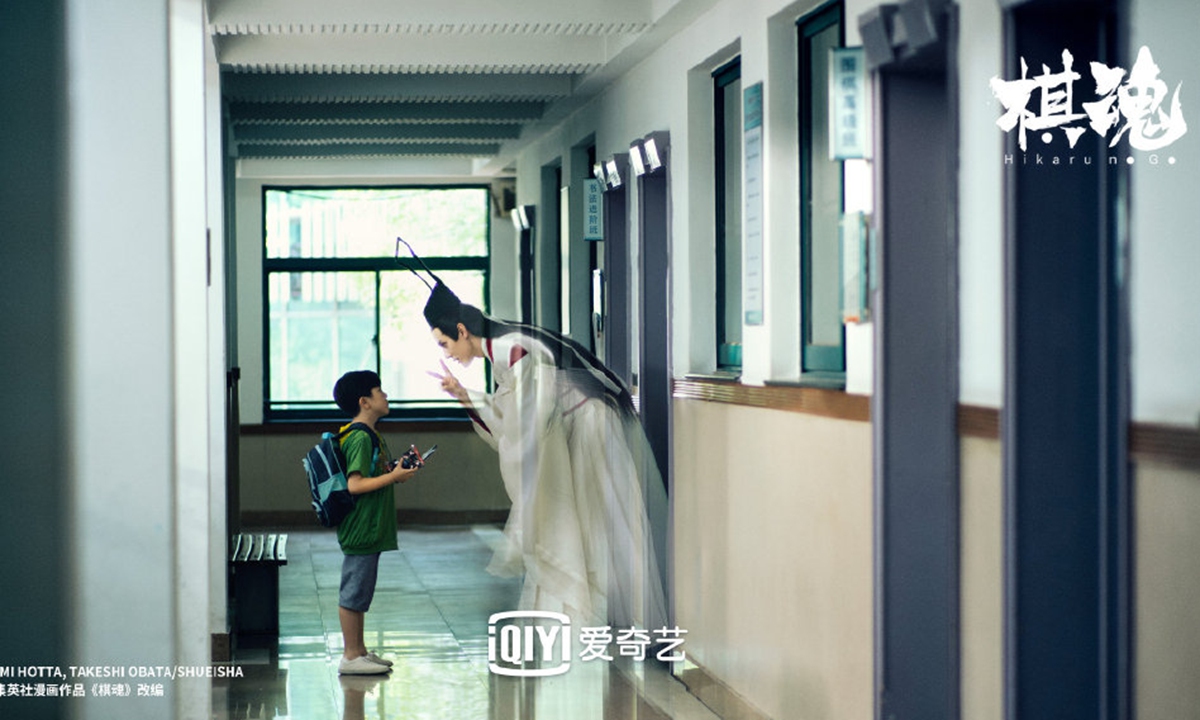
Photo: Weibo account of Hikaru no Go
A Chinese web drama adapted from Japanese manga
Hikaru no Go (lit: Hikaru's Go) is getting positive reviews from Chinese netizens, many of whom are calling it a successful adaptation.
Qihun (lit: Chess soul) has a 7.5/10 on major Chinese media review platform Douban and has become a hot topic on Sina Weibo as of Thursday.
The web drama is based on the traditional game of Go, or
weiqi as it is known in China, and tells the story about young Chinese Go players. The original Japanese comic was also well-received with over 25 million copies in circulation and winning the Shogakukan Manga Award in 2000 and the Tezuka Osamu Cultural Prize in 2003.
"The comic is my favorite Japanese manga. I have read it more than 10 times since I was in the middle school. When hearing about the adaptation, I was very worried that my favorite would be ruined, but that did not happen," one loyal Chinese fan surnamed Huang told the Global Times on Thursday.
She admitted that the adaption has been beyond her expectations.
"The producers not only retained the manga's story line and many of the original lines, respecting the original works, but also made some changes in accordance with Chinese society and the development of Go in China."
The fan's compliments have been echoed by many netizens. Many Sina Weibo users have commented that they couldn't stop watching the drama after clicking on the first episode.
The drama has also generated Chinese netizens' interest in the board game Go, which originated in China.
Besides the web drama, two Chinese movies are being adapted from works based on Japan's
onmyoji culture, one of which is scheduled to be released during the 2021 Spring Festival.
Industry insiders have noticed that Chinese film and drama producers have been increasingly turning to Japanese history and cultural works for their adaptations in recent years.
Shi Wenxue, a film critic based in Beijing, told the Global Times on Thursday that traditional Japanese culture is deeply related to Chinese culture, so audiences will have feelings of intimacy when watching these works.
"This advantage makes it easier to adapt them," Shi said.
Also due to this relationship, the recent rise in popularity of traditional Chinese culture among young people has also increased demands for works containing traditional Japanese culture, the critic noted.
"But I hope more creators can dig deep into our own culture and create brilliant works that are completely original," he added.




